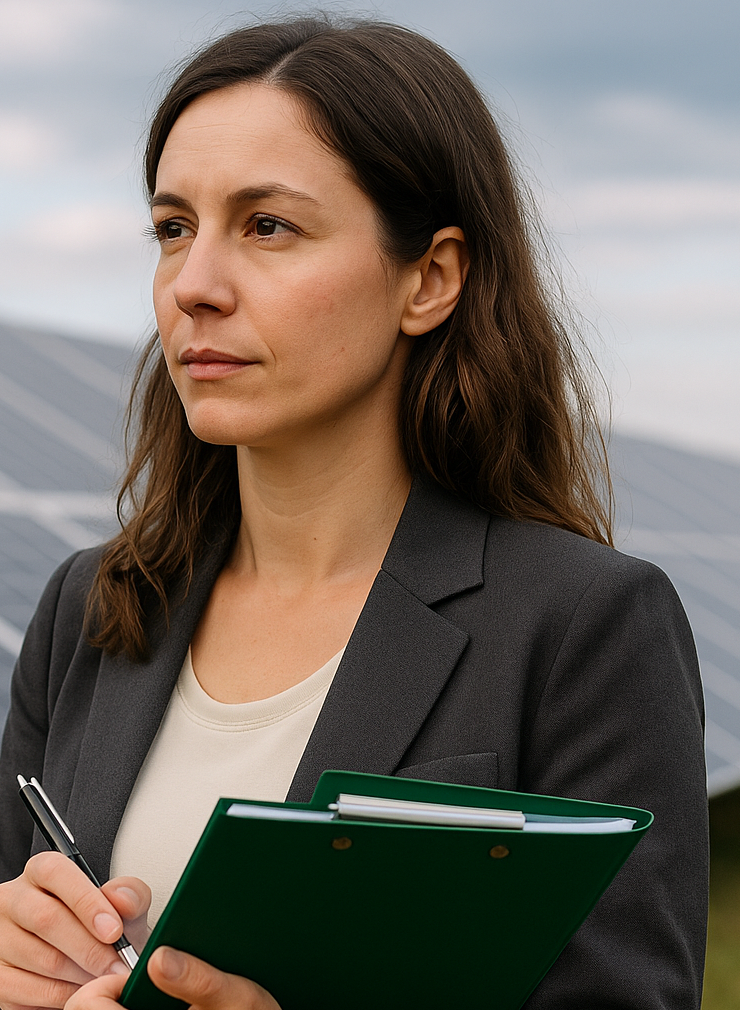The Environmental Impact Assessment (EIA) is a critical legal tool for evaluating the potential environmental effects of energy projects before their implementation. Under Turkish law, many energy projects—such as power plants, refineries, and transmission lines—require an EIA report as part of the licensing and permitting process. This article explores when an EIA report is mandatory in energy law, its legal framework, the criteria for assessment, and its implications for energy investments.
1. Legal Framework of the EIA Process in Turkey
The EIA process in Turkey is primarily regulated by:
- Environmental Law No. 2872 (Çevre Kanunu).
- EIA Regulation (ÇED Yönetmeliği) – The latest version was updated by the Ministry of Environment, Urbanization, and Climate Change.
- International Conventions – Turkey is a party to environmental treaties like the Espoo Convention (on environmental impact assessment in a transboundary context).
- Sectoral Laws – For energy, EIA requirements are often linked with the Electricity Market Law (No. 6446), Natural Gas Market Law (No. 4646), and Petroleum Market Law (No. 5015).
2. What Is an EIA Report?
An EIA report is a technical and legal document that:
- Evaluates the environmental, social, and economic impacts of a project.
- Identifies mitigation measures to reduce negative effects.
- Is reviewed and approved by the Ministry of Environment or its provincial directorates.
Without a “Positive EIA Decision” or a “EIA Not Required” certificate, many energy projects cannot obtain construction permits, EPDK licenses, or financing.
3. When Is an EIA Report Mandatory?
The EIA requirement depends on:
- Project type and scale,
- Location (protected areas, agricultural lands, etc.),
- Potential environmental impacts (air, water, soil, biodiversity).
3.1. Projects That Always Require EIA (Annex-1 List)
Under Annex-1 of the EIA Regulation, large-scale energy projects must undergo a full EIA process. Examples include:
- Thermal power plants (fuel oil, coal, natural gas) with a thermal power exceeding 300 MWt.
- Hydroelectric power plants with installed capacity exceeding 25 MW.
- Refineries and large fuel storage facilities.
- Nuclear power plants.
- Petrochemical plants and major oil pipelines.
3.2. Projects That May Require EIA (Annex-2 List)
Annex-2 includes projects subject to a “Preliminary EIA Screening.” Examples:
- Thermal plants between 50-300 MWt.
- Wind and solar farms over a certain size (e.g., more than 20 turbines or 10 hectares of land use).
- Smaller hydroelectric plants (1-25 MW).
- Bioenergy and waste-to-energy plants over certain capacity thresholds.
The Ministry reviews Annex-2 projects to decide whether a full EIA report is necessary.
4. EIA in Renewable Energy Projects
While renewable energy sources are environmentally friendly, their construction and land use impacts can be significant:
- Wind farms – EIA is required if the project involves 20+ turbines or is located in a sensitive area.
- Solar power plants – Projects over 10 hectares often undergo screening.
- Geothermal plants – Projects with drilling depth over 2000 meters typically require EIA.
5. EIA and Energy Licensing
Energy Market Regulatory Authority (EPDK) does not issue a generation license without an EIA approval. For example:
- Electricity generation licenses (under Law No. 6446) require either a “Positive EIA Decision” or “EIA Not Required” document.
- In petroleum and natural gas projects, pipeline construction permits also depend on EIA compliance.
6. Steps in the EIA Process
- Project Description File Submission: Investor submits details about project size, location, and technology.
- Scope Determination: Ministry decides if a full EIA or only a screening is needed.
- Preparation of EIA Report: Prepared by certified environmental consulting firms.
- Public Participation Meetings: Stakeholders and local residents are consulted.
- Review and Decision: Ministry issues “EIA Positive” or “EIA Not Required” decision.
- Monitoring and Reporting: After approval, compliance is monitored throughout construction and operation.
7. Consequences of Ignoring EIA Requirements
Operating an energy project without a required EIA approval leads to:
- Heavy administrative fines under Environmental Law No. 2872.
- Suspension of licenses and construction permits by EPDK or municipalities.
- Legal challenges and cancellation of permits by administrative courts.
- Potential civil liability for environmental damage.
8. Legal Disputes Related to EIA
Common disputes include:
- Challenges to the adequacy of EIA reports by NGOs or residents.
- Annulment lawsuits against “EIA Positive” decisions due to inadequate public participation.
- Conflicts over land use and biodiversity impacts (e.g., forest destruction, wetland filling).
9. Role of Legal Counsel in EIA
A lawyer specializing in environmental and energy law can:
- Ensure compliance with EIA requirements during project planning.
- Manage public participation and consultation processes.
- Handle administrative appeals if the Ministry rejects or requires additional EIA studies.
- Represent investors in EIA-related litigation.
10. EIA in International Energy Projects
For cross-border energy projects (e.g., pipelines), Turkey complies with Espoo Convention standards, ensuring transboundary environmental assessments.
11. Timeline for EIA Approval
- Preliminary screening: ~1-2 months.
- Full EIA report: 6-12 months, depending on project complexity and public consultations.
- Delays often occur due to incomplete documentation or public opposition.
12. Conclusion
The EIA process is a mandatory step for most medium-to-large energy projects in Turkey. It ensures that environmental risks are properly assessed and mitigated before construction begins.
Key Takeaways:
- Annex-1 projects (e.g., large thermal plants, major hydropower) always require EIA.
- Annex-2 projects undergo screening to determine EIA necessity.
- EIA approval is closely linked to EPDK licensing and municipal permits.
- Failure to comply can result in license revocation, fines, and lawsuits.

Yanıt yok